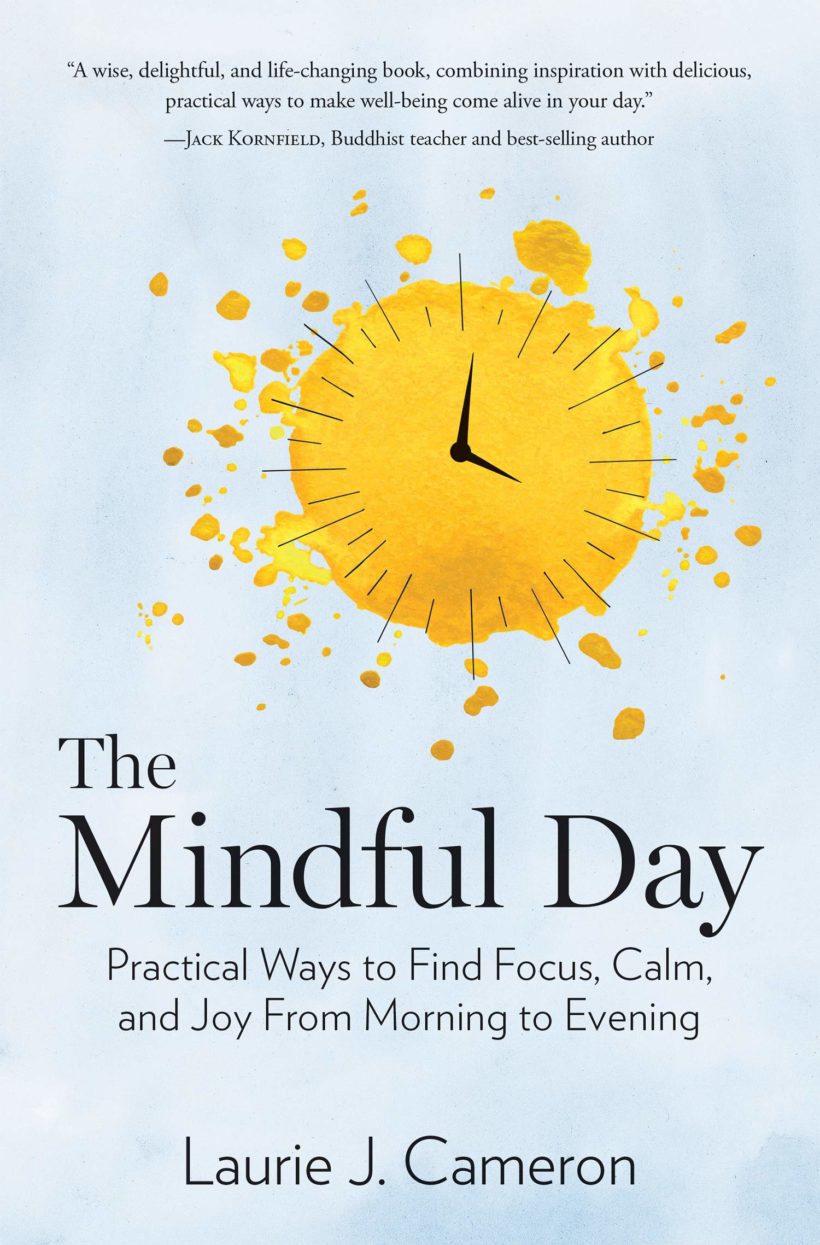3 Ways to Make Stress Your Friend

Yes, you read that headline right. Stress can actually be a positive thing if we respond to it in a mindful way, says mindfulness and leadership expert Laurie J. Cameron. She’s the founder and CEO of PurposeBlue and the author of the The Mindful Day: Practical Ways to Find Focus, Calm, and Joy From Morning to Evening, and today we have her three tips for using those stressors to your advantage.
3 Mindfulness Keys to Turn Stress to Your Advantage
The body’s response to stress — rapid heartbeat and breathing, narrowed vision, and a jolt of adrenaline — is an evolutionary adaptation designed to mobilize us to action.
For example, when you have a client deadline, an exam the next day, or a ski race to win, this physiological response can actually give you the energy and focus to excel. However, much of the time the patterns in our mind impact how we interpret the events in our lives. We assign meaning to deadlines, exams, and other people’s behaviors that tank our ability to perform.
Because you are built for survival, your brain’s own alarm system is scanning for threats and triggering the “fight-flight-freeze” stress response to escape what you interpret as danger.
Sometimes the dangers are real — but these days we get triggered throughout the day by a comment, a surprise decision, an angry text, and also by the way we relate to our responsibilities and to the people around us. As a human, your neurobiology is designed to react quickly rather than to thoughtfully respond; to feel stress rather than balance; and to hear your inner critic rather than positive, encouraging words of possibility.
Here are her top three ways to increase your mastery in responding to stress.
1. Choose a different perspective. Our mindsets drive how we interpret stress. As we become more mindful, we are able to witness our thoughts and see when we are creating an internal self-talk that fuels a negative narrative. Choosing to see stressful events as temporary, seeing yourself as empowered to take action versus a victim of circumstance, and seeing events as opportunities to grow all increase our resilience.
2. Shift how you interpret your body’s signals. How we interpret the events in our lives has a lot to do with how stressful we feel. What if we interpreted the body’s signals as giving us energy, power, and drive to succeed? The next time you feel stress coming on, consider that those feelings are mobilizing you for action.
3. Train with the Body Scan meditation. Sit quietly and systematically direct attention from one body part to the next, starting at the top of the head and moving to the feet (or vice versa). This strengthens the insula, the part of the brain associated with our capacity for interoception (a lesser-known sense that helps us understand and feel what’s going on inside our body). This capacity is at the heart of being aware, empathetic, and emotionally agile. As we learn to shift the body’s response to stress, we open up space for self-compassion and skillful action for ourselves and others. (More on this in her book, The MindfulDay.)
As we get better at becoming more conscious in our daily lives, we can see with greater awareness our thoughts (What am I believing about this situation?) and our body sensations (What is my body telling me right now?).
When we do this, we can create space to calm the mind and body and be more skillful in the very full and sometimes intense lives we lead.
What daily stressor can you see in a new way? –Laurie J. Cameron


Comments
This is a great post! My 3 year old always wants to help and I want a safe and fun ways to incoprorate him into the kitchen. Thank you!
The information you shared is very helpful, thank you.
thank you so much this was much needed
Comments are closed.